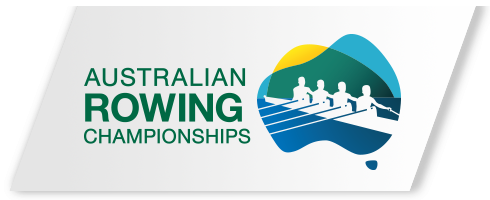Rupert Guinness at Champion Lakes Regatta Centre
One of the biggest challenges facing all Australian sports is how to retain participants through the teenage years, beyond school and into adulthood.
Sport should be for life… but life often gets in the way of sport. Employment, study, travel, family are all common themes when young athletes take time away from their preferred activity.
Rowing is no different but the sport is full of examples of top-level performers who have either returned to the sport after a break, or been late-starters in the first place. One of them is none other than Rachael Kininmonth, Executive Officer of the Queensland Girl Schools Rowing Association and a Rowing Australia Board Member.
The Australian Rowing Championships (ARC) at the Champion Lakes Regatta Centre in Perth have showcased the strength of school and youth rowing for girls and boys. For example, from the more than 1900 competitors entered at the ARC, over 1100 were from schools.
The trick is converting that flood of participation numbers into continued involvement in the club scene, as well as a steady talent pipeline through the performance pathways, beginning with clubs and/or universities and heading to the top of the pyramid at the Hancock Prospecting Women’s National Training Centre in Penrith or the Reinhold Batschi Men’s National Training Centre in Canberra.
It is vital for the health of the sport that participation rowers continue in the sport and ensure they view rowing as a community that can embrace them for life, with opportunities aplenty, including Masters Rowing starting from the age of 27. This year’s Australian Masters Rowing Championships will be held in Sydney from June 1-4 and is an example of such offerings.
“It is a bit of a shock to kids when they finish school and enter into the club system, which is a lot more independently driven,” said Rachel Kininmonth, Executive Officer of the Queensland Girl Schools Rowing Association and a Rowing Australia Board Member.
But the issue does not have to be a bigger concern than it needs to be, says Kininmonth, who is a living example of why.
Kininmonth started rowing at the Thames Rowing Club in London while living Great Britain with her now husband, Brad, who was a rower and encouraged her to take it up.
But she did not compete seriously until she was 26 after the 1993 announcement of Sydney’s appointment as the Host City of the 2000 Olympic Games.
That led to her selection in the Australian Women’s Coxed Eight for the 1998 and 1999 World Rowing Championships and 2000 Olympics, in which the boat placed fifth.
“In my jubilant ignorance of youth, I thought it would be a good thing … ‘I’ve just started rowing. Why don’t I represent Australia at the Games’?” Kininmonth said of how the Sydney Olympic announcement heightened her interest in sport.
“I was 26 years of age and funded myself and got myself back to Australia after a year of training in the UK. I finished [elite rowing] in Sydney at the age of 30.
“I’ve got a really different lead. But I think it’s really important that people do see the opportunities in rowing lasting longer than we actually give it credit for..
“If you want to take a rest, do so and come back because you can be fitter and stronger and physiologically prepared.”
Rowing is truly a sport for life and one that you can engage with in multiple ways, whether it is rowing on the water, coaching, volunteering in many guises, including officiating or at events like the 2024 Australian Rowing Championships, that will be held in Sydney from March 18-24, 2024.
